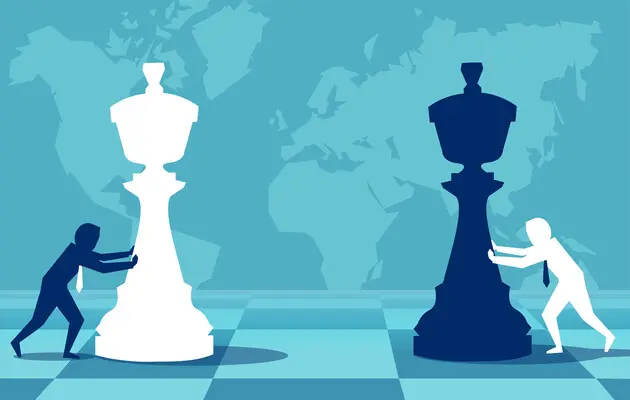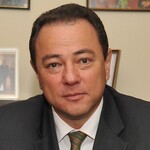The Choice of the Global South: Chess, Go or Putin’s “Chapayev”?
The state of geopolitics at the current historical stage can be described by a formula that is not too simple, but understandable for the initiates: the number of countries willing to lay their bricks on the foundation of the new world order is greater or equal to the number of potential mediators in possible negotiations with Russia to end the war and much lower than the number of domestic experts on Southeast Asia who have never been there, but understand everything well. In defense of the latter, it should be recognized that it is indeed difficult to make sense of the contradictory actions of some of the most important countries in the region.
For example, India attended the Peace Summit in Switzerland but did not sign the final declaration; Prime Minister Narendra Modi did not attend the SCO summit in Kazakhstan, but visited Moscow soon afterward. Among other aspects of traditionally friendly relations with Russia, his demand to Putin to return Indian citizens drawn into the war against Ukraine to their homeland draws attention. Earlier, the country’s authorities had already managed to bring back 10 Indians who had been sent to the western front by Russia. A criminal group involved in recruitment was arrested in India. Earlier (and also during his visit to Moscow), the Sri Lankan Foreign Minister demanded that the Russian authorities not only terminate the illegal contracts and return his fellow citizens home, but also pay compensation to the families of the murdered Sri Lankans. Earlier, Nepal made a similar demand to Russia. CNN reported about 15,000 Nepalis who were made “cannon fodder” by Russia. There is no need to talk about citizens of Somalia, Syria, Cuba and China — their governments support Russia. But the situation is not so clear in Southeast Asia.
The example of Indonesia is a testament to this. This is the most important country and a potentially strong economy, whose ambitions in the context of creating the architecture of a new world order were recently discussed in an article for Nikkei Asia by Dino Patti Djalal, Indonesia’s former ambassador to the United States. In his opinion, along with China’s rise to the rank of the second “superpower,” we are witnessing a new phenomenon: the rise of the so-called middle powers, whose opinion will soon become no less important. There are “middle” states in the Global North, but there they are all involved in defense pacts. In the Global South, whatever is meant by this vague definition, the “middle” states are trying to seek strategic balance, and this makes them potential creators of the future world order. What remains unclear in this model is exactly how the "middle" Indonesia, Saudi Arabia, Brazil, Mexico, Turkey, South Africa are going to shape the new world. ASEAN is an excellent example of coordinating the policies of regional states, but this organization is not global in nature. Similarly, the “queue” of those wishing to join either the SCO or the BRICS says nothing about the ability of these organizations to shape the international order of the day, while the examples of difficulties in trying to coordinate the common position of the equally powerful G20 are more than convincing.
Indonesia was present at the Peace Summit, but did not sign the final Declaration. At the same time, it became known that this country refused to refuel and generally service flights of Russian airlines; importantly, this happened during the high season in Bali. According to Russian sources, last year 150,000 citizens of the Russian Federation traveled there, and all of them got there with connecting flights. This situation has been going on for two years, and one of the reasons is that Indonesian banks refuse to settle accounts with Russian partners because of the threat of sanctions. Russia also demands guarantees from Indonesia that Russian airliners will not be arrested on its territory (there were 13 such cases in different countries in 2022), but it is not possible to get them either. As if by chance, publications concurrently appeared in the information space about how at one time the KGB tried to blackmail Indonesian President Sukarno by showing him a video of him allegedly engaging in inappropriate relations with a Russian stewardess. Sukarno is said to have liked the video and asked for a copy to be made to show to his friends. The blackmail failed.
After Putin’s visit to Vietnam, during which the so-called Russian president tried to show everyone that he was respected not only in North Korea (15 signed agreements, deepening the comprehensive strategic partnership and all that), U.S. Assistant Secretary of State for East Asian and Pacific Affairs Daniel Kritenbrink, who served as U.S. ambassador to Vietnam from 2017 to 2021, arrived there. The State Department official said the US and Vietnam have “never been closer to each other in defining the vision of the world the two countries would like to see.” He is confident that the partnership between the US and Vietnam “has never been stronger,” and Vietnamese Foreign Minister Bui Thanh Son affirmed that the US is a “partner of strategic importance” for his country. Vietnam raised relations with the US to the highest possible level — a comprehensive strategic partnership — back during Joe Biden’s visit in September 2023. According to the minister, Hanoi is willing to work with the US “to promote a comprehensive strategic partnership for effective, stable and meaningful development based on respect for each other’s independence, sovereignty, territorial integrity and political institutions.” In the language of business, this is called hedging. U.S.-Vietnam trade in 2023 is $111 billion, 97 of which is accounted for by Vietnamese exports. By comparison, the trade turnover between Vietnam and the Russian Federation last year was $5 billion.
The SCO summit in Kazakhstan, which was expected to be a “response” to the Peace Summit, ended with the signing of 25 absolutely empty documents, which, like all previous ones, will have no follow-up. The only result — and that of very dubious quality — was the admission of Belarus as a member of the organization (most likely in exchange for Kazakhstan’s entry into BRICS). In principle, we should expect that the more pariahs join the SCO, the less capable it will be.
The visit of the UN Secretary General to Astana, who ignored the Peace Summit, looked strange. In Kazakhstan, the plan for “peacemaking” in Ukraine that Putin tried to promote was not even discussed, nor were the previously formulated proposals of China and Brazil (perhaps they will appear at BRICS in the fall).
The main result is that China has demonstrated to everyone its control over the SCO and the Central Asian states. By the way, the next Japan-Central Asia summit is going to be held in Kazakhstan in August, and we should think that it will also be a serious dialog about the future. China is betting on Kazakhstan, Japan is counting on Uzbekistan, and in all this there are clear intentions of the real participants of geopolitical games to ensure a strategic balance of their mutual interests.
This is also evidenced by the statistics on the visits of China’s top government leaders from January 2023 to date. Of the 87 visits abroad, 43 were to European countries (24) and ASEAN (19). To other Southeast Asian countries, 33 were paid (for comparison: 15 visits to Africa), five were made to the Americas and France each, and three more to the United States.
Not only the number, but also the content of these visits indicates Xi Jinping’s intention to preserve economic relations with the key trading partners, to try to cool their strategic relations with the United States by constantly emphasizing the alleged advantages of a multipolar world and an independent foreign policy. The inexplicable confidence that France, Germany and a host of other perennial U.S. allies are simply buckling under Washington’s pressure is likely to be of Russian origin. It is to be expected that this confidence will soon be shaken.
The NATO summit in Washington will feature not only additional U.S.-South Korea-Japan events, but also U.S.-Japan-Australia-New Zealand and several others. Not only are active efforts to strengthen NATO’s ties with the Indo-Pacific region expected, but so is the development of measures to reduce the threat of a chasm among allies in the event of a change of the White House host. Japan and the Philippines are expected to sign a defense agreement as soon as possible that will provide for the admission of each country’s troops to the other’s territory. Previously, Japan signed such agreements with Australia, Britain and France. The Philippines intends to follow suit.
Talks about the power of the Global South have so far been dashed by simple decisions on additional tariffs on Chinese electric cars and batteries taken this year by the US and the EU. Turkey (by 40% at once) and Brazil did the same. In these conditions, China has reoriented its export flows to Asia, where they immediately felt the influx of cheap Chinese goods. In conditions when consumption is the main source of growth, this threatens to bankrupt many manufacturers, in particular in Thailand, Vietnam, Indonesia and even South Korea. It is expected that these nations will soon be forced to defend their markets against Chinese expansion. With the clearly unfavorable economic situation in the PRC, the consequence of which is extremely high youth unemployment, such steps are not favorable for Beijing. There is a way out — to establish a just peace in Europe, return international relations back to the legal fold, reject unsubstantiated paranoid rhetoric about a better multipolar world, whose outlines no one has seen and no one really understands. The somewhat unexpected election results in Iran may serve as a warning to some autocrats.
The great Zbigniew Brzezinski once viewed geopolitics in Eurasia as a game of chess. These days, it is becoming clear that it is more like a game of go. And only Putin continues to play “Chapayev.”
Please select it with the mouse and press Ctrl+Enter or Submit a bug












 Login with Google
Login with Google